By Kerry Abel
In March Ipsos last published polling outlying public attitudes towards strike action but hasn’t followed up, despite rail strikes ongoing into June 2023 and nurses and junior doctors engaged in ballots for pay and against the under-funding of the NHS. Much of the media coverage has trailed off too. We can assume this is because all the trends show that working people standing up for fair pay through their trade unions still have support from the public.
It was clear at the height of the cost of living, trade union fight back when inflation was high and pay offers were low or non-existent that the Conservative government hoped to rely on the old tropes of blaming hard line unions and that the public would fall in line and agree with how inconvenient it all was. This has led the Tories to putting the Minimum Service Levels Bill through Parliament instead of focus on the job at hand of talks to resolve the disputes.
The public however didn’t agree and vox pop after vox pop showed the general public reluctant to disagree with the trade unions. Faced with a barrage of scandals from the Tory party over their handling of the pandemic, aided and abetted by a decade of Conservative austerity, when asked to choose on balance who they side with, the side that has come out winning in 2023 is trade unions.
What the polling says
YouGov provides some evidence of the trends over the last year, all pretty much saying the same thing.
When asked a series of questions from several angles about support for trade unions, which sections of industry should be allowed to strike and where the Labour Party – the party set up by the trade union movement – analysis of the results point us in the same direction.
The chart below, from YouGov, tracks the opinions of all adults. For further details visit the YouGov site here: Do Trade Unions play a positive or negative role in Britain today?

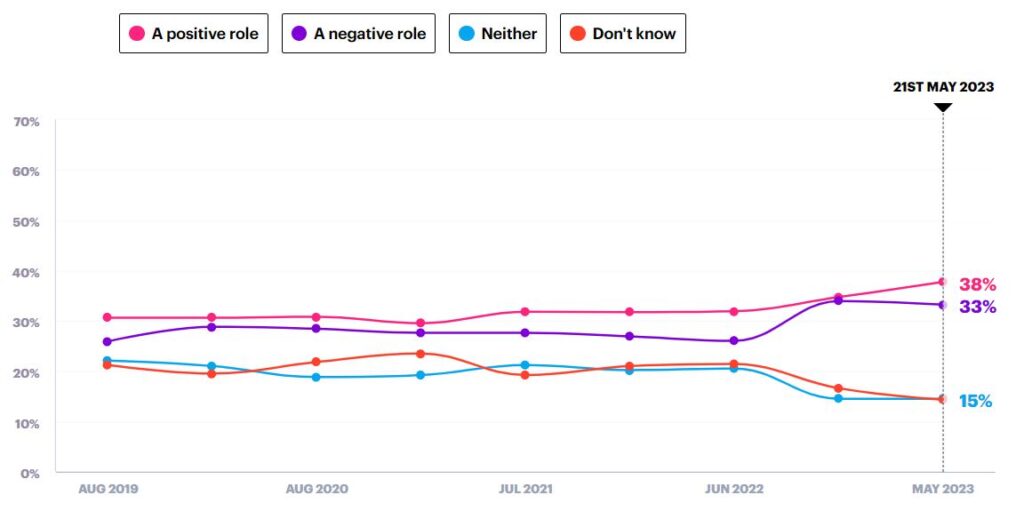
The view that trade unions play a positive role has had greater support than the view that they play a negative role this last 12 months. Those thinking they play a positive roll edging up from 32% – 38% since June 2022 and those thinking trade unions play a negative role has also risen, from 26% to 33%. Despite the negative trend going up over 12 months, this has dipped since November 2022, the period which saw most of the strikes.
When YouGov asked for a breakdown of which workers should be able to strike, all groups of workers who’ve taken strike action over the last year were supported by 50% or more in May 2023, including doctors, nurses, rail and Tube workers, teachers, civil servants and air traffic controllers. In each of these groups of workers more people thought they should be allowed to take strike action than those who thought they should not be allowed. The only group of workers where more thought they should not be allowed to take strike action were police officers, however even here those who support police being allowed to strike has increased this past year from 38% to 44%. The charts below, from YouGov, tracks the opinions of all adults. For further details visit the YouGov site here.

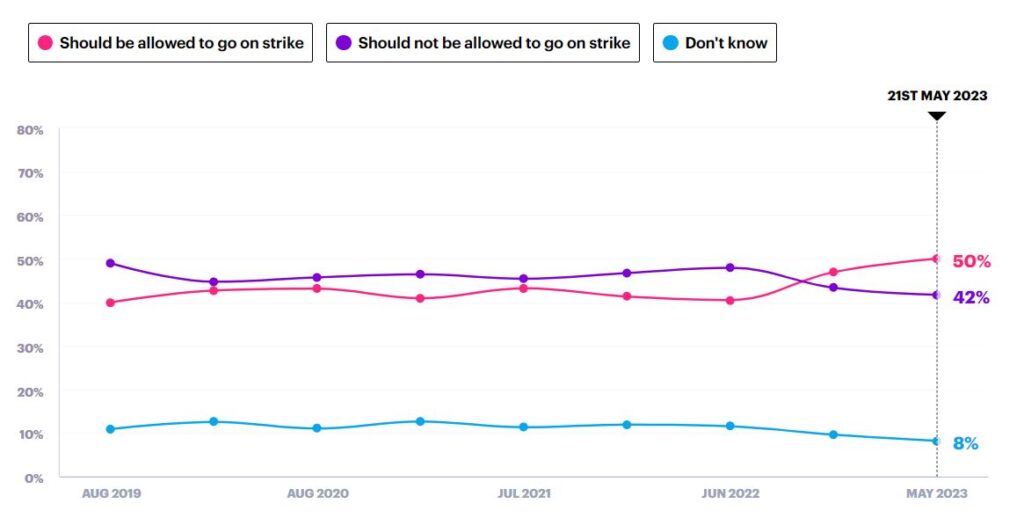

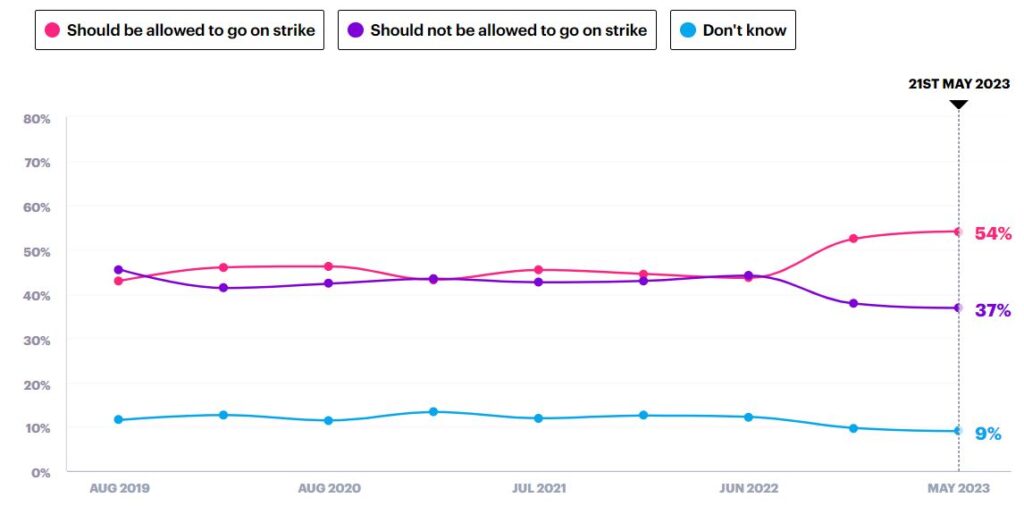

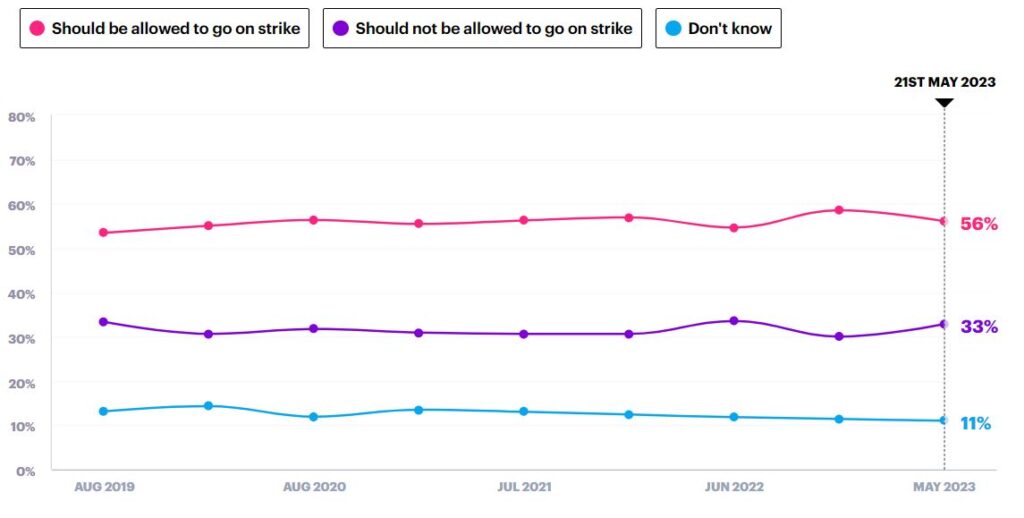

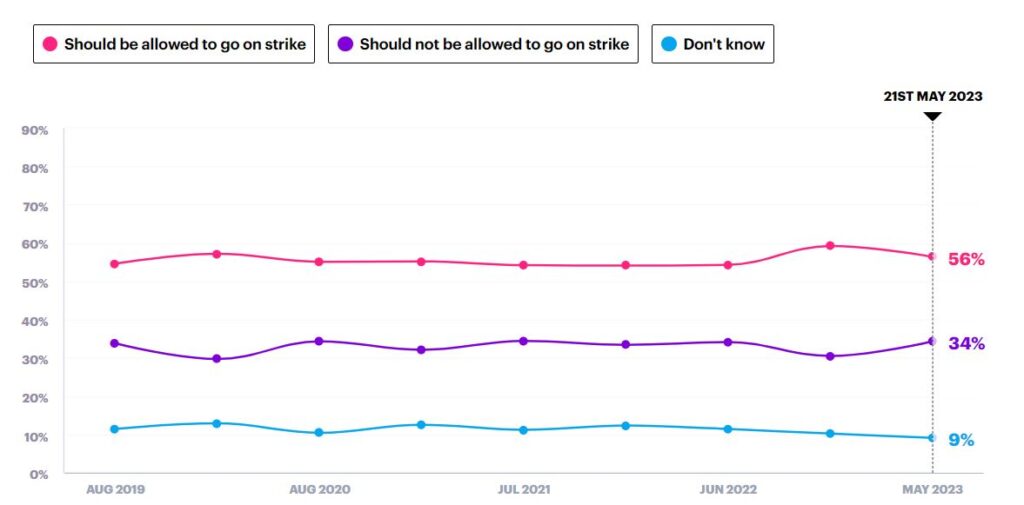

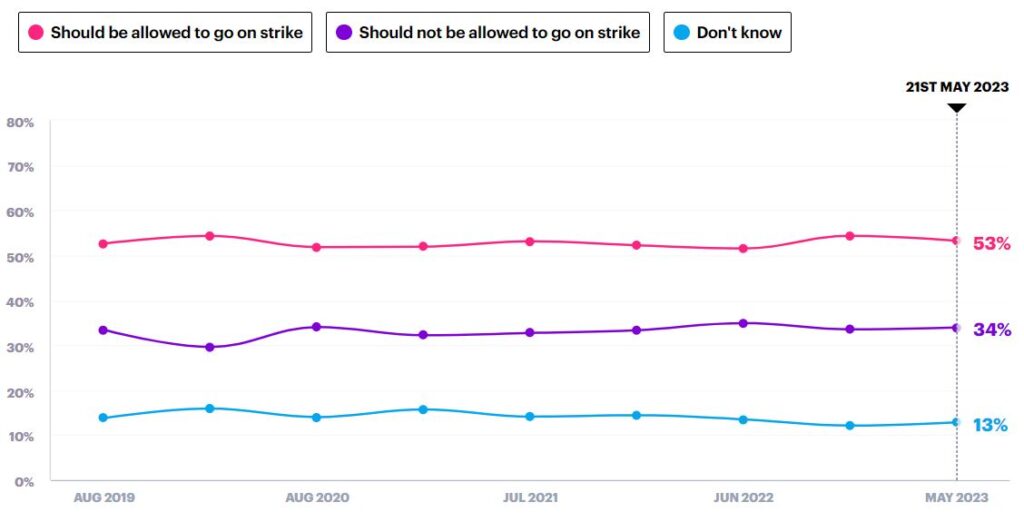

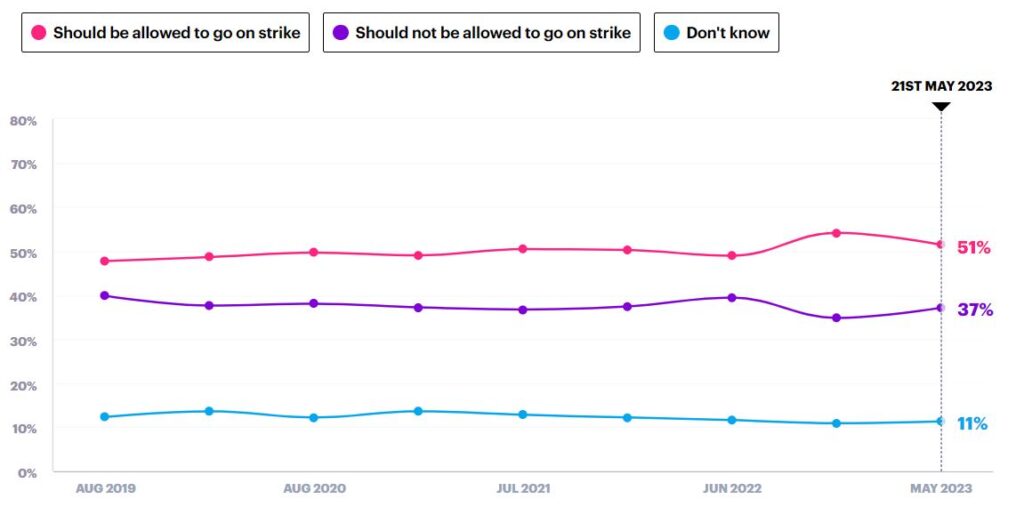

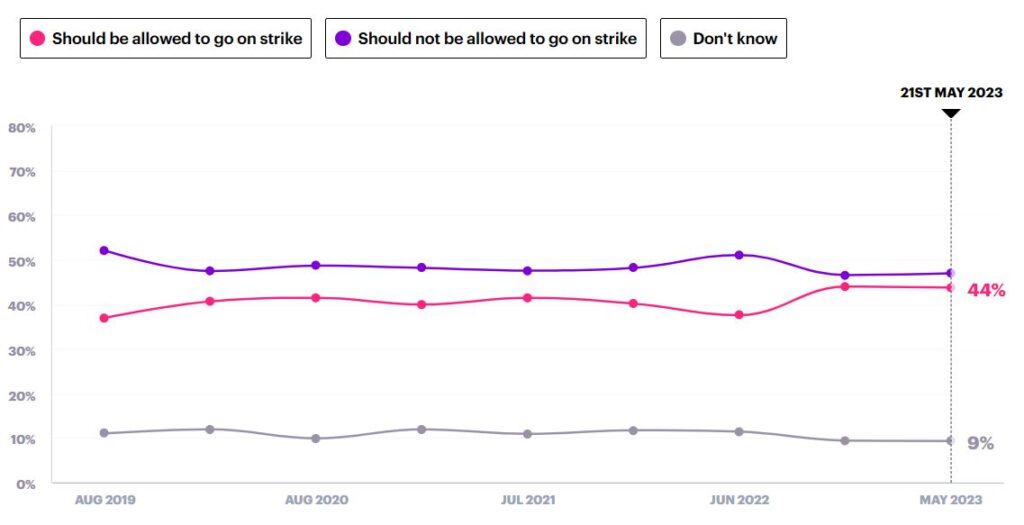
When asked if trade unions face too many restrictions, public opinion has marginally more shifted towards the government’s view than the union as to whether it is too hard or too easy for the unions to take strike action, meaning slightly more have believed the government than the trade union side in the media battle of words on this issue. The chart below, from YouGov, tracks the opinions of all adults. For further details visit the YouGov site.

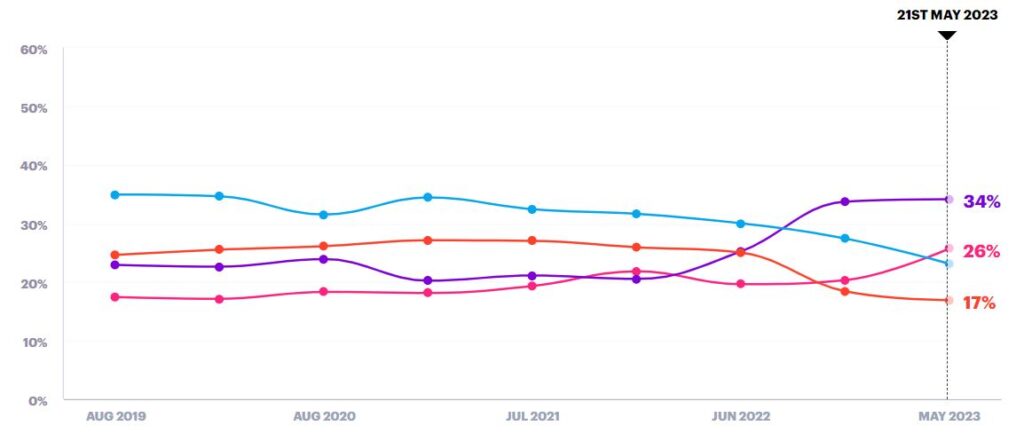
Whether the Labour Party – the party set up by the trade union movement – should align more closely with the trade unions. Analysis of the results point us in the same direction (see here: What relationship should Labour have with the Trade Unions?) And whilst it’s true that the highest percentage was ‘don’t know’. From those who did answer, those who think there should be a closer relationship has gone up starkly from 16% in June 2022 to 23% in May 2023 and those who think the link should be more distant or broken have gone down significantly losing 5 points and 4 points respectively in the same time period. The chart below, from YouGov, tracks the opinions of all adults. For further details visit the YouGov site.

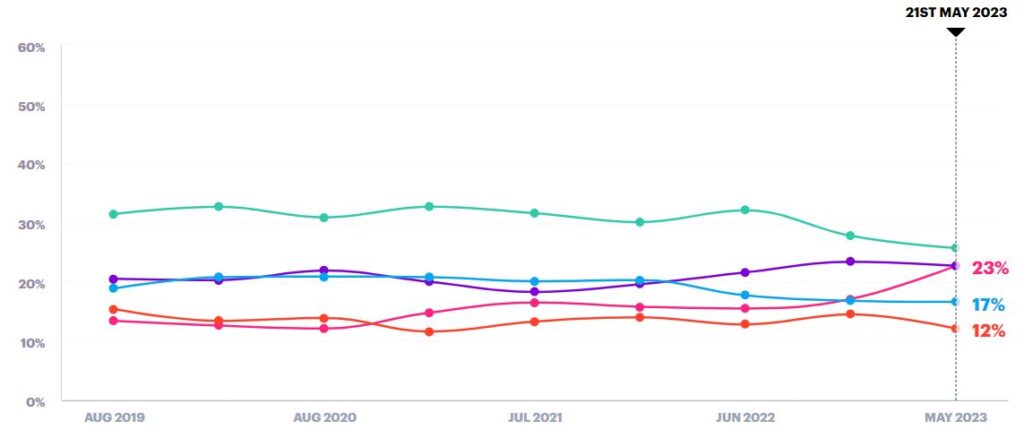
The case is made by the government that trade unions are anachronistic and out of touch, however the public think differently. When asked Do Trade Unions reflect ordinary working people in Britain today? support for trade unions has gone up marginally in a year. Considering this has been a year of a huge upswell in strike action that has undoubtedly affected British people in the pocket, their travel and their healthcare, this is no small trend. And those saying they don’t think trade unions reflect working people has dipped since the strikes got going. The chart below, from YouGov, tracks the opinions of all adults. For further details visit the YouGov site.

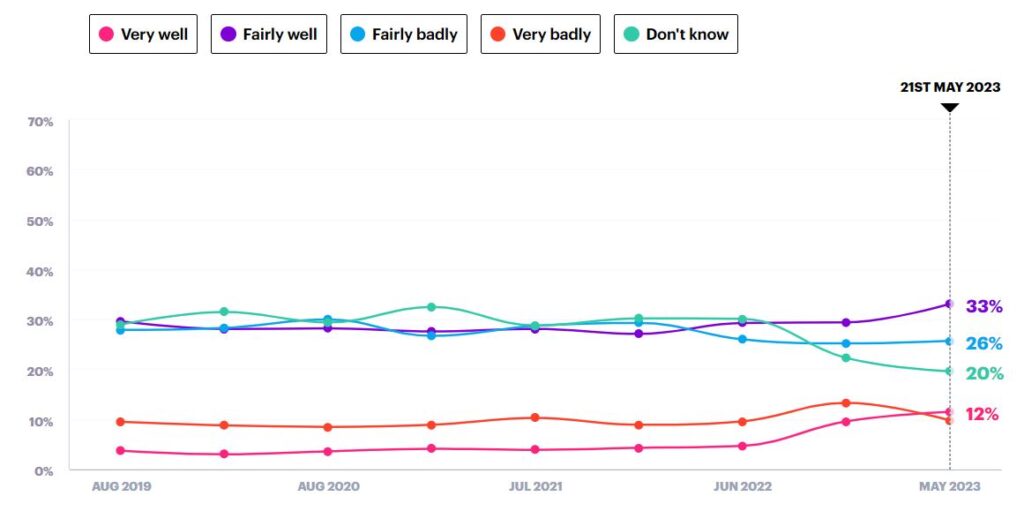


Recent Comments